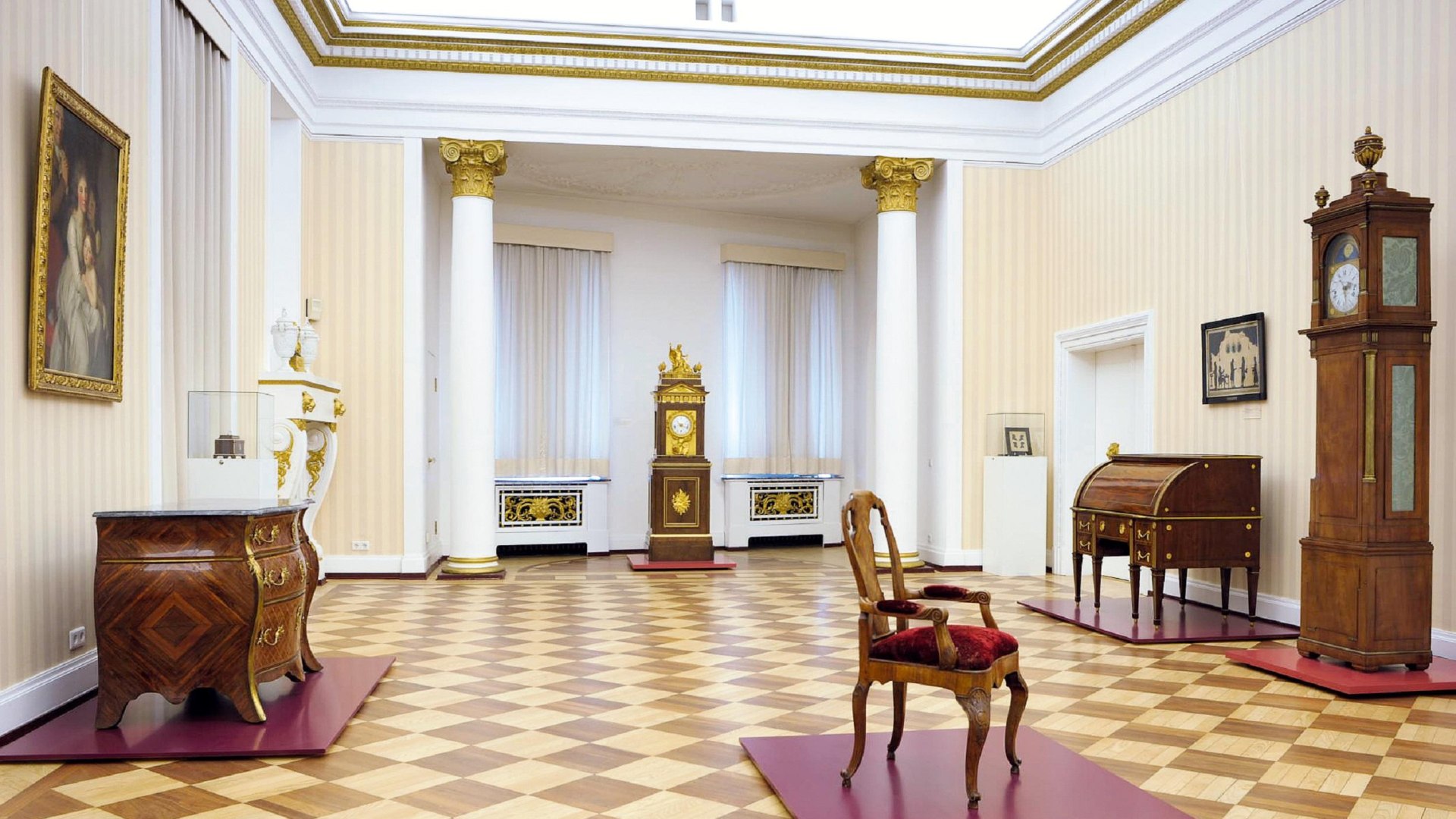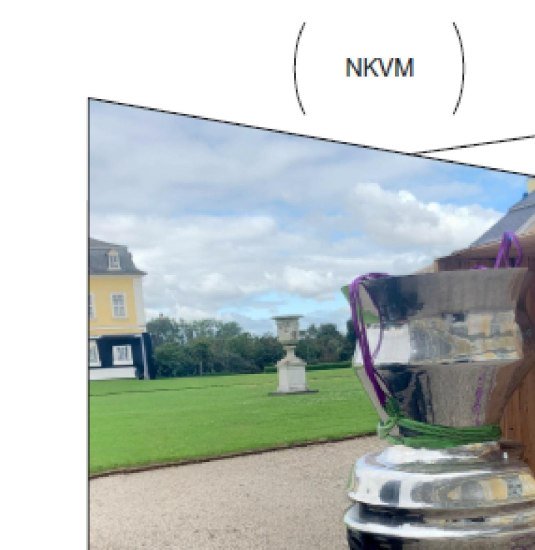From 07.05.2025 until the 15.07.2028
Dauerausstellung: Roentgen-Museum
Raiffeisenplatz 1 a, 56564 Neuwied
Abraham and David Roentgen "Neuwied furniture" for Europe
Abraham Roentgen (1711-1793) and his son David (1743-1807), the most important furniture artists of the 18th century, supplied the European royal courts between Paris and St. Petersburg with their then ultra-modern luxury furniture, the "Neuwied furniture". Their customers included the Russian Tsarina Catherine the Great, Kings Louis XVI of France and Frederick William II of Prussia, as well as Goethe's father. In rooms designed to match the furniture, numerous secretaries, transforming tables, chests of drawers, chairs and caskets, decorated with precious inlays and gilded bronze ornamentation as well as technical refinements, provide an excellent overview of the diversity of Neuwied production. The "Apollo Clock", a magnificent musical clock by David Roentgen, which he made together with the famous Neuwied clockmaker Peter Kinzing and delivered to the Russian Tsar's court in St. Petersburg, is outstanding. Portraits of the Counts and Princes of Wied in the 17th and 18th centuries as well as views and plans of the town of Neuwied document the founding and early development of the baroque residential town of Neuwied. The religious tolerance of the sovereign, Count Friedrich Alexander zu Wied, made it possible for the Moravian Church, to which Abraham Roentgen also belonged, to move in. The Roentgen-Kinzing collection is complemented by furniture from the Baroque and Rococo periods, the Biedermeier period in the early 19th century and the Art Nouveau period around 1900. Together with paintings, graphic art and arts and crafts objects, they provide an insight into the domestic culture of these eras.
Friedrich Wilhelm Raiffeisen
In an educational and multimedia presentation, visitors learn about the life of "Father Raiffeisen", who founded today's Raiffeisen co-operatives and Raiffeisen banks. In 1852, Friedrich Wilhelm Raiffeisen (1818-1888) became mayor of Neuwied-Heddesdorf. The plight of the population in the Westerwald prompted him to found various associations and co-operatives to help people help themselves. Raiffeisen's idea, whose name is world-famous today, developed into an international and efficient organisation. The Westerwald parlours, furnished with furniture and household items from Raiffeisen's time, are an important addition to the social history of the great founder of the cooperative. They also provide an insight into the lives of the "common" people, a social class different from the clientele for Roentgen furniture or Kinzing clocks.




